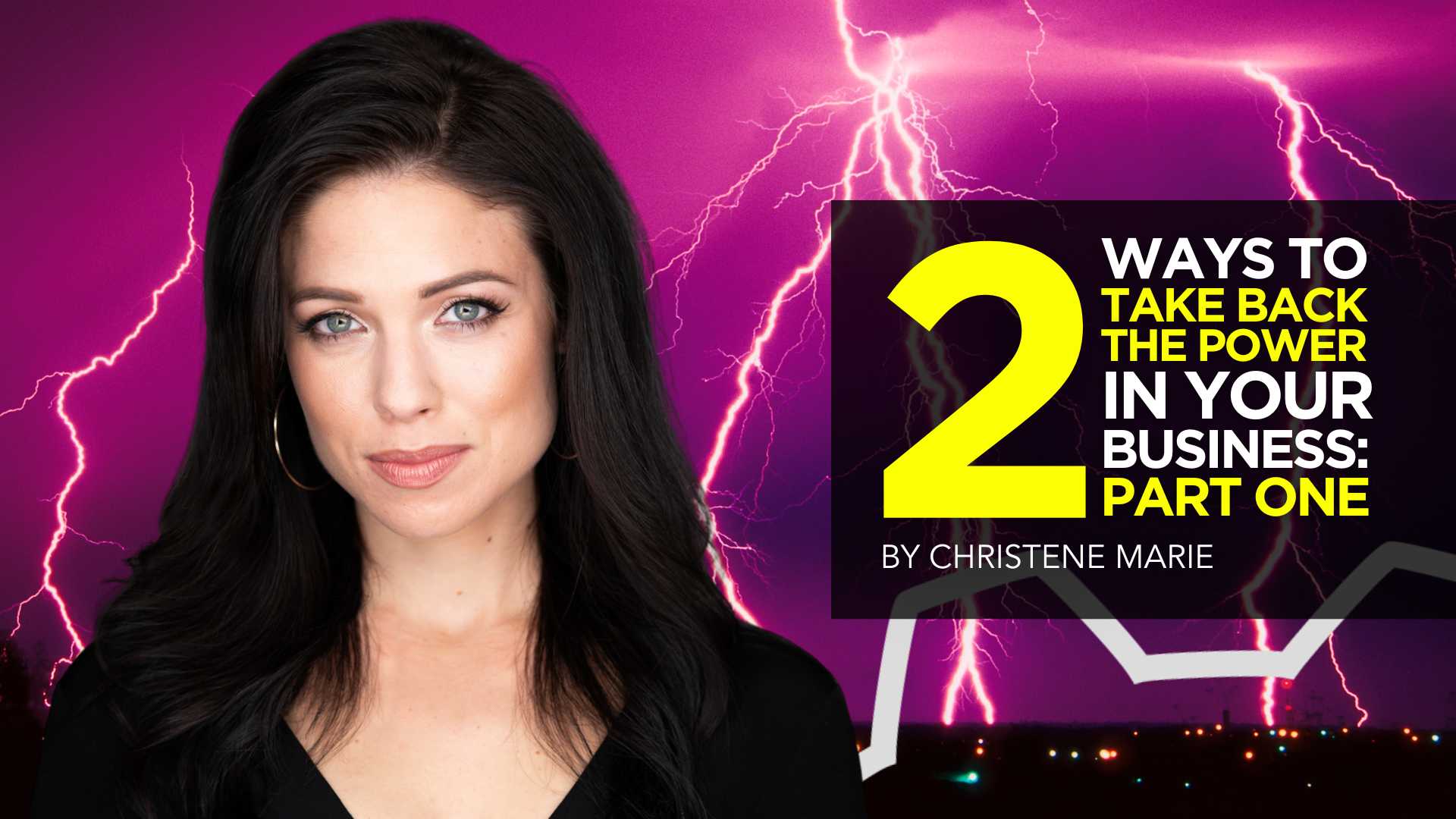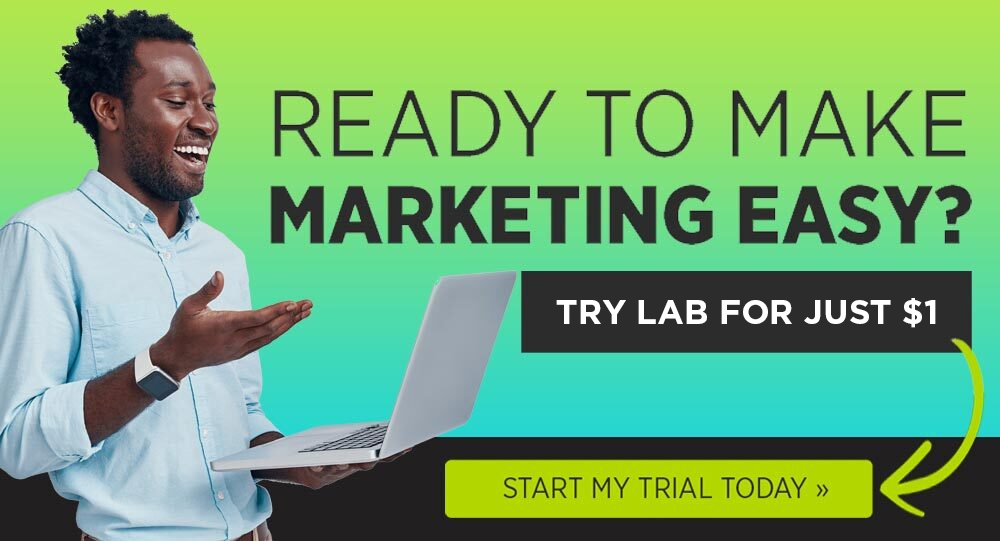2 Ways to Take Back the Power in Your Business: Part 1
- March 26, 2024
- Knowledge Base
- 0 Comments


As I considered the topic that would best serve entrepreneurs, business owners, and marketers alike — all of whom I am — I mused over what I needed most throughout the last year.
I needed to take back control of my business.
And I am charging you to do the same.
While I have provided two strategic ways to do so, the first outlined below and the second outlined in this blog post, it is critical that we first identify the root issue.
Why are you and I not operating in the driver’s seat of our marketing and/or businesses?
Three fundamental core challenges come in the form of 3 Cs: Competition, Colleagues, and Customers.
Who Are You Listening To?
1. Competition
We know the feeling all too well.
We feel a pit in our stomach or a slight racing of the heart when our competitors’ ads or organic content seem to be taking over social media and the internet: Google Ads, YouTube, TikTok, newsletters, LinkedIn, programmatic…
And don’t forget traditional advertising.
Especially if you are in the home services or specialty services spaces where direct mail is 100% where you need to be, but don’t forget the QR code and UTMs and unique landing pages and geotargeted ads and email nurturing sequence for a holistic approach.
Our competition’s budget appears never-ending, and their marketing team must be fantastic.
Is theirs the strategy we should adopt, deviating from our carefully charted course agreed upon at the outset of the year?
2. Colleagues
Or perhaps it’s that of the peers in our Masterminds or networking groups or online communities.
After all, within these groups resides a wealth of knowledge and expertise, tried-and-true insights, and wins. I am guilty as charged — my talk at T&C 2024 was chock-full of recommendations guiding marketers on their path to generating over 800% ROAS…
Should our marketing strategy or business’s bottom line deviate then?
3. Customers
Oh! But the power of our customers…when their phone call just after 5:00 PM because they saw their competitor’s ad and want to change course.
Or when our customers’ higher-ups ask why you didn’t generate enough leads last month and how the bottom line is threatened if we don’t do something fast.
And how they joke about your job being on the line if numbers don’t change.
Do any of these resonate?
If you are a human with a soul that cares about your business, team, and customers, I anticipate your hand is raised alongside mine.
Friends, it is time we unbuckle the seatbelt of the 3 Cs and graciously escort them out.
It’s time for you to regain control.
How to Regain Control of Your Business: Knowing What You Want
I cannot tell you how many times my question, “What do you want?” is met with blank stares.
Such a simple question with such significant ramifications.
To assume control, we must know what we want for the following three reasons.
1) Knowing what you want keeps you focused on the bottom line.
So many of us fail to regularly take stock of where we are actually going.
Our heads are down, focused on tasks before us, rather than heads up, looking to the finish line yet equally aware of how our strategies today are or are not moving us closer to that target.
With our heads down, the focus is on the key performance indicators (KPIs) of the necessary activations to achieve the bottom-line goal rather than the focus being on the goal itself.
The trick is maintaining clarity of the goal and bottom line to then inform the strategic direction.
EXAMPLE: The Knowing Agency serves as fractional CMO for a waterproofing company. A major — colossal, even — KPI is lead generation.
This KPI is obviously important because you need leads to get customers.
However, in 2023, our lead count was down significantly.
With the 3 Cs close at hand, I questioned myself: Am I leading the team in the wrong direction!?
We must be willing to ask tough questions and pursue the truth, even if it may prove that we are heading in the wrong direction — especially then!
For we must first know the truth to then be changed by it.
But I had to zoom out in order to know.
With the bottom line as the primary focus, I then considered the KPI.
When we zoomed out and measured that KPI in light of the bottom line, revenue, rather than as a standalone metric, we actually saw a significant increase in overall revenue and profits despite a lower lead count.
This means that while we were driving fewer leads, they were much more qualified, hence driving higher revenue.
My question for you is: Do you know what you want?
And do you know your bottom line goal and the KPIs necessary to get there?
2) Knowing what you want protects you from the 3 Cs.
The bottom-line goals of your company or department serve as guardrails to keep you on the straight and narrow when one of the 3 Cs comes calling.
Protection from Competitors: Their bottom line could very well be entirely different from yours. Perhaps you seek to expand into a new region and must allocate funds by cutting budgets on top-of-funnel brand awareness tactics. Yet your competitor is dominating TV. Don’t deviate; your bottom line is at stake.
Protection from Colleagues: Perhaps your bottom line is similar, but your target audiences are different. They are finding wild success with newsletters reaching an older demo while your audience is highly engaged with podcasts. Yes, perhaps explore newsletters, but not at the expense of your engaged audience on your podcast.
Protection from Customers: Hopefully, you both have the same bottom line! However, when my client called with concerns about the KPI of lead numbers, which is indeed important, my ability to maintain focus on the bottom line guided their right thinking about what matters most: Revenue.
Protection from the 3 Cs does not mean turning a blind eye or ignoring what is working for them. But it does keep your bottom line as the chief focus.
3) Knowing what you want protects you from running on auto-pilot.
Knowing what you want maintains momentum and breathes energy into tasks that otherwise would be monotonous.
Lead yourself or your team in revisiting the vision for the company regularly.
Nine-to-five employees increasingly seek to align with impact-driven organizations, and keeping the transformation the company aims to procure top-of-mind will drive motivation.
The transformation is always emotional, even surrounding a product or service.
EXAMPLE: Returning to the waterproofing company our team supported. Waterproofing a basement transforms the customers’ emotional states from one of anxiety or worry into one of peace or assurance.
What once was: We are a waterproofing company servicing homeowners in Destin, Florida, for 54 years. Trust our team to waterproof your basement!
Turns into: Our company cares for your family. Our company preserves homeowners’ greatest investment. Our company, ultimately, protects your home, which is where life happens.
Suddenly, a waterproofing company has empathy.
Just like that, we are serving families and homes, not just servicing a basement.
But before you can truly know what you want, you first have to know who you are.
Head on over to Part 2! (Coming soon…)




